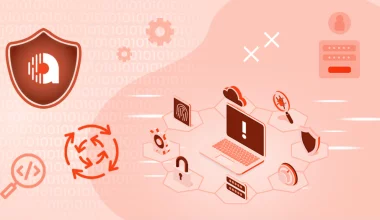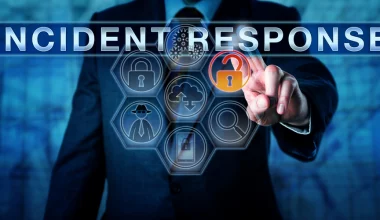Protect yourself is now interspersed with professional life as business trips have become increasingly common. Although traveling to new areas can be exciting, it’s important to consider how to protect your devices. Cybersecurity poses particular hazards. The biggest threat to organizations globally today, according to the most recent figures, is cyberattacks, and business travelers are frequently the main targets.
Cybersecurity is of paramount importance and companies that neglect it can incur economic losses, lose their credibility, and even be subject to punitive measures. Our blog will discuss the significance of cybersecurity for business travelers and offer practical methods to protect sensitive data.
The Great Risks of Cyber Threats to protect your devices for Business Travelers
Corporate travelers often rely on laptops, cell phones, and tablets to access confidential data while they are in transit. Business travelers frequently use unsecured public Wi-Fi networks, which can make them vulnerable to cyber-attacks. Hackers can readily intercept data sent across these networks, including login credentials, financial information, and other sensitive data.
Business travelers are also at risk of physical theft, such as having their devices stolen or losing them while traveling. Such conditions could allow unauthorized people to access private data, leading to data breaches and other security concerns.
Most business travelers are not aware of the potential risks associated with cybersecurity. However, many travelers make the mistake of assuming that their devices are already secure and fail to take necessary precautions to protect their sensitive information. This ignorance makes them an easy target for cyber attackers who are constantly on the lookout for vulnerable targets.
The Biggest Consequences of Cyber Attacks to protect your devices on Business Travelers

The consequences of cyber attacks on business travelers can be severe. Businesses can suffer significant financial losses, including legal liabilities and regulatory fines. Data breaches can damage a company, which leads to a drop in client trust.
The impact on individuals can also be severe, with stolen identities and financial losses. Cyberattacks could result in the loss of confidential data such as identities, bank details, and others.
More importantly, the psychological effects of cyber attacks cannot be underestimated. Victims may feel fear, powerlessness, and mistrust, which can affect their professional and private lives.
High-Ranking Strategies for Cybersecurity of Business Travelers
In order to protect yourself and sensitive information and prevent cyber attacks, it is necessary for business travelers to take appropriate precautions.Here are some high-ranking strategies that can help:
1. Use VPNs: Victims may feel fear, powerlessness, and mistrust, which can affect their professional and private lives. While connecting to public Wi-Fi networks, using a VPN can assist stop data eavesdropping by online criminals.
2. Use Two-Factor Authentication: Two-factor authentication (2FA), which boosts the security of logins, needs to provide kinds of identity to access data.
3. Keep Devices Secure: Business travelers should always keep their devices secure, using strong passwords and regularly updating software and security patches.
4. Use Encrypted Email Services: The adoption of encrypted email-mail makes email discussions more secure and harder for hackers to eavesdrop on privacy.
5. Be Aware of Social Engineering: Cyber attackers employ the tactic of social engineering to deceive victims into disclosing private information. Business travelers should be aware of these tricks and take precautions to not fall for them.

Conclusion
In conclusion, cybersecurity should be a top priority for business travelers. Ignoring the risks associated with cybersecurity can have severe consequences for both businesses and individuals. To protect sensitive data from cyberattacks, appropriate safeguards are necessary, such as using VPNs, implementing two-factor authentication, and utilizing encrypted servers. To protect yourself during travel, it is important to be aware of potential risks and take necessary measures to ensure a safe and secure journey.






